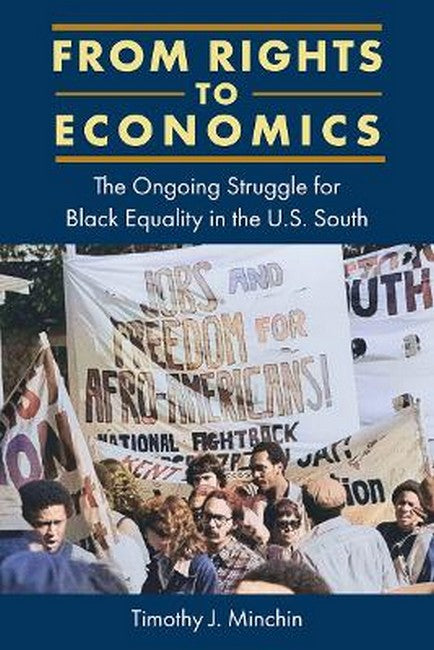Timothy J. Minchin is associate professor of history at La Trobe University in Melbourne, Australia.
Request Academic Copy
Please copy the ISBN for submitting review copy form
Description
"Minchin's gripping stories are engaging and offer an important contribution to a growing body of scholarship."--Journal of American History ? "Especially important in highlighting the crucial intersection between Black activism and federal policy and intervention; the nature and extent of continuing white supremacy and Black protest; and the evolving positions taken by the federal government in the battle over entrenched racial discrimination."--Journal of Southern History ? "Shows how the success of the civil rights movement was the essential inspiration that energized new strategies and renewed commitments to campaign for African American economic equality. . . . Chronicle[s] the voices of African American workers and the union, community, religious, and political leaders struggling for economic justice in a new era of American history."--Labor Studies Journal ? "Covers new ground and forces us to reevaluate how the movements transpired after the mid-1960s. . . . An important and valuable work for civil rights and labor scholars."--Journal of American Ethnic History ? "[Shows] that southern Black economic progress after 1965 required ongoing struggle through political pressure, publicity, negotiation and litigation in order to realize the potential of the Civil Rights Act."--Southern Quarterly ? "Successfully sheds light on both the unique strategies activists used to expand Black economic opportunity . . . as well as significant, however overlooked, episodes in the ongoing civil rights era."--Florida Historical Quarterly ? "The great benefit of this book is its illumination in one volume of some of the complexities of the continuing struggle for civil rights after 1965."--North Carolina Historical Review ? "Successfully sheds light on both the unique strategies activists used to expand Black economic opportunity . . . as well as significant, however overlooked, episodes in the ongoing Civil Rights Era."--Florida Historical Quarterly ? "The great benefit of this book is its illumination in one volume of some of the complexities of the continuing struggle for civil rights after 1965."--North Carolina Historical Review ?

